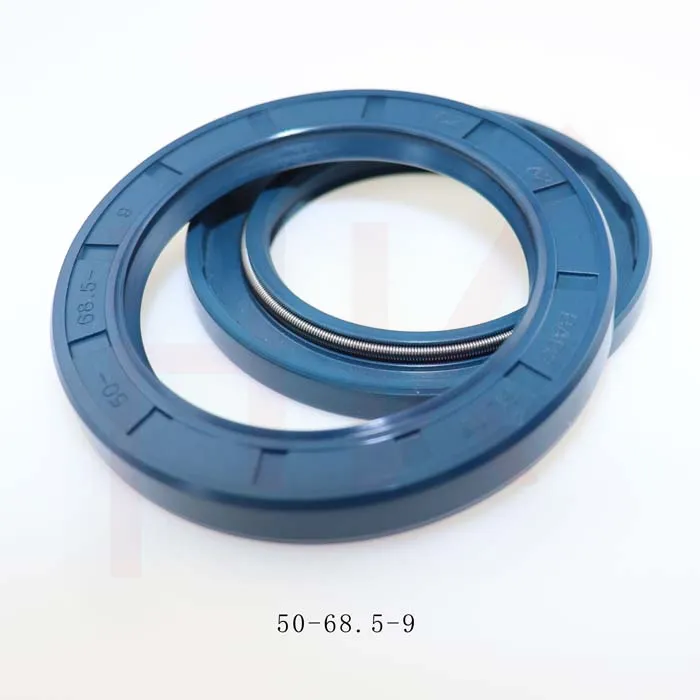Oct . 21, 2024 20:05 Back to list
High Performance Sealing Solutions for High Pressure Shaft Applications in Industrial Machinery
High Pressure Shaft Seals Function, Design, and Application
High pressure shaft seals play a crucial role in a variety of industrial applications, maintaining the integrity of machinery and ensuring efficient operation. These seals are designed to prevent the leakage of fluids or gases from rotating shafts, which can be particularly problematic in high-pressure environments. Understanding the function, design, and applications of high-pressure shaft seals helps in selecting the appropriate seal for specific operations.
Function of High Pressure Shaft Seals
The primary function of high-pressure shaft seals is to prevent the escape of fluids—whether liquid or gas—from the machinery. This is critical in many industries, including oil and gas, chemical processing, and manufacturing, where equipment operates under high-pressure conditions. A compromised seal can lead to loss of operational fluid, resulting in decreased efficiency, environmental hazards, and increased maintenance costs.
Shaft seals not only prevent leakage but also protect the internal components from contaminants. By keeping foreign particles out, these seals help preserve the functions of bearings and other critical components, extending the life of the machinery.
Design Considerations
High pressure shaft seals are designed to withstand extreme conditions, including high pressures, temperatures, and corrosive environments
. There are several key design factors to consider1. Material Selection The material used for high-pressure shaft seals is critical to their performance. Common materials include elastomers, PTFE (Polytetrafluoroethylene), and metal. The choice of material largely depends on the operating environment's temperature, pressure, and chemical compatibility.
2. Seal Type There are various types of high-pressure shaft seals, including lip seals, mechanical seals, and wiper seals. Lip seals are often used for rotary applications, providing excellent sealing under moderate pressure. Mechanical seals offer enhanced performance under high pressure and temperature, making them suitable for more demanding applications.
3. Size and Tolerance The dimensions of the seal must be tailored to the specific shaft diameter and housing, along with appropriate tolerances. An inadequately sized seal can lead to premature failure or inadequate sealing performance.
high pressure shaft seals

4. Hydraulic Pressure The design must account for the hydraulic pressure acting on the seal. This can influence the compression and performance of the seal. An optimal design will ensure that the seal remains effective under varying pressure conditions.
Applications of High Pressure Shaft Seals
High-pressure shaft seals are utilized in several sectors, including
1. Oil and Gas In this sector, seals are essential for pumps, compressors, and other equipment that operate under high-pressure conditions. They play a vital role in maintaining pressure integrity and preventing leaks that can lead to hazardous situations.
2. Chemical Processing High-pressure seals are necessary in reactors, mixers, and storage tanks, ensuring that chemicals are contained even under extreme conditions. The use of corrosive-resistant materials is often paramount in these applications.
3. Automotive Industry High-pressure shaft seals are commonly found in powertrain components, where they help contain lubricants and prevent contamination from dust and other debris. This ensures optimal performance and longevity of vehicle components.
4. Aerospace High-pressure seals are used in various aerospace applications, including engine components and hydraulic systems. Seals must withstand extreme pressures and temperatures, making their design and material choices critical.
Conclusion
High pressure shaft seals are fundamental components in many industrial applications. Their design and function are critical for ensuring the efficiency and safety of machinery operating under severe conditions. By understanding the various types of seals, material choices, and application requirements, industries can better equip their machinery for reliable performance. Investing in high-quality shaft seals not only enhances operational efficiency but also contributes to cost savings by reducing maintenance and operational downtime. As technology continues to advance, the development of improved high-pressure sealing solutions will further elevate their effectiveness and reliability across diverse applications.
-
TCN Oil Seal Metal Ring Reinforcement for Heavy Machinery
NewsJul.25,2025
-
Rotary Lip Seal Spring-Loaded Design for High-Speed Applications
NewsJul.25,2025
-
Hydraulic Cylinder Seals Polyurethane Material for High-Impact Jobs
NewsJul.25,2025
-
High Pressure Oil Seal Polyurethane Coating Wear Resistance
NewsJul.25,2025
-
Dust Proof Seal Double Lip Design for Construction Equipment
NewsJul.25,2025
-
Hub Seal Polyurethane Wear Resistance in Agricultural Vehicles
NewsJul.25,2025
-
The Trans-formative Journey of Wheel Hub Oil Seals
NewsJun.06,2025
Products categories
















